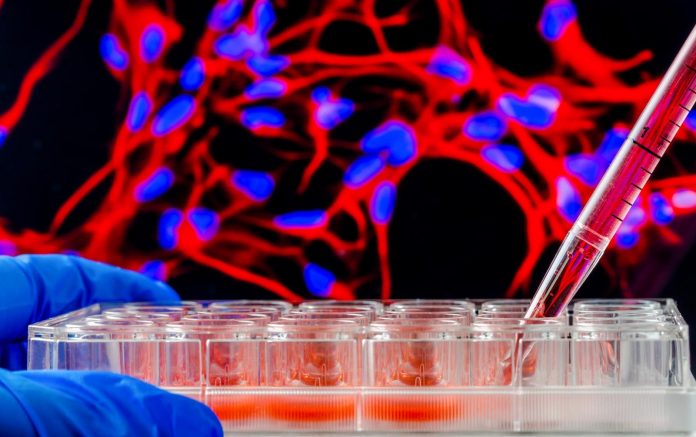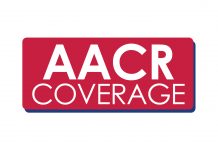By Nicola M. Parry, DVM
The 4th conference driven by the dynamic collaboration of the International Association for the Study of Lung Cancer (IASLC) and the American Association for Cancer Research (AACR) took place January 4-7 at the Hard Rock Hotel in San Diego, California. Combining
the strengths of both organizations, this annual international joint conference continues to attract a varied audience, including physicians and patient advocates, as well as scientists in basic, translational, and clinical fields of lung cancer research. By bringing together this diverse group of professionals each year, this meeting aims to promote scientific interaction and discussion of recent advances in lung cancer research and treatment, to address important needs in these key areas.
The focus of this year’s meeting was “Lung Cancer Translational Science from the Bench to the Clinic.” Approximately 250 attendees heard about the most recent advances across the spectrum of lung cancer research. During the 4-day program, 7 plenary sessions covered a range of topics that included early detection and prevention, immunotherapy, drug resistance, and novel targets and pathways; one of these sessions was devoted to presentations of highly rated abstracts, many by early-career researchers. Another session—“How Advocacy is Driving Science” discussed the role of advocates and advocacy organizations in driving lung cancer science, and highlighted how patient advocates, scientists, and clinicians collaborate to fuel progress against lung cancer. Topics featured in concurrent sessions included animal models, stem cells, diagnostics and biomarkers, and hot topics in radiation oncology. Throughout the conference, attendees shared updates from the meeting on social media using the dedicated #Lung16 hashtag.
In this session, we heard about exciting new avenues in small cell lung cancer, some of which have led to clinical trials that have had a real impact on patients with this disease.
—Alice T. Shaw, MD, PhD
According to conference chairpersons Karen L. Kelly, MD (UC Davis Comprehensive Cancer Center, Sacramento, California) and Alice T. Shaw, MD, PhD (Massachusetts General Hospital Cancer Center, Boston, Massachusetts), this year’s meeting was an “absolute success” with many highlights. In particular, they emphasized how the first session of the meeting, on small cell lung cancer, showcased how basic research can be translated into new and effective therapeutic strategies. “Until now, little progress has been made in small cell lung cancer, with the same chemotherapy regimens used over the last few decades,” noted Dr. Shaw. However, “in this session, we heard about exciting new avenues in small cell lung cancer, some of which have led to clinical trials that have had a real impact on patients with this disease,” she said.
Updated results were also presented from several studies, including preliminary findings from the ongoing Phase I/II Xalt2 trial on the investigational tyrosine kinase inhibitor (TKI), X-396, in patients with anaplastic lymphoma kinase positive (ALK+) advanced non-small cell lung cancer (NSCLC). Dr. Karen L. Reckamp (City of Hope Comprehensive Cancer Center) presented the safety and efficacy data, which continue to demonstrate that X-396 has promising activity in patients with ALK+ NSCLC.
Data were also presented from a study involving LL-067, an epidermal growth factor receptor (EGFR) inhibitor currently in development. According to Nicholas Cacalano, MD (University of California Los Angeles David Geffen School of Medicine), study findings so far have shown that LL-067 accumulates in the brain and inhibits the growth of metastatic NSCLC. Clinical trials involving LL-067 are expected to begin this year.
In another presentation, Diane Legg, a lung cancer patient and survivor, shared a patient’s perspective on the impact of basic and clinical research on patient care. Diane, who has advanced EGFR mutant lung cancer, reflected on the remarkable path she has taken since her diagnosis over 10 years ago. “She discussed how important it was for her to pursue a clinical trial in order to access new therapies that could be more effective than standard therapy,” said Dr. Shaw. Diane participated in a clinical trial of a novel combination of targeted therapy and immunotherapy, and during her presentation, she also “reflected on how clinical trials can, on the flip side, expose patients to unexpected side effects that limit the potential benefit of the treatment,” added Dr. Shaw.
Reflecting on the success of the conference, Dr. Shaw emphasized how it “brought together the various disciplines who are invested in finding a cure for lung cancer—basic scientists, translational scientists, clinicians, [and] drug makers.” She also noted the attendance of many trainees who are committed to studying lung cancer in order to find the next breakthroughs. “The meeting provided a great opportunity for us not only to learn the latest advances from each other, but also to build collaborations,” Dr. Shaw concluded.










